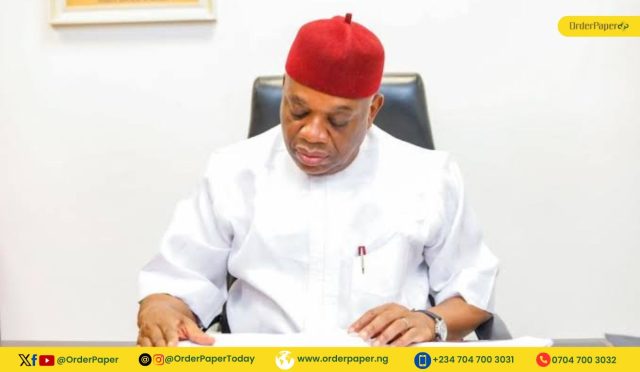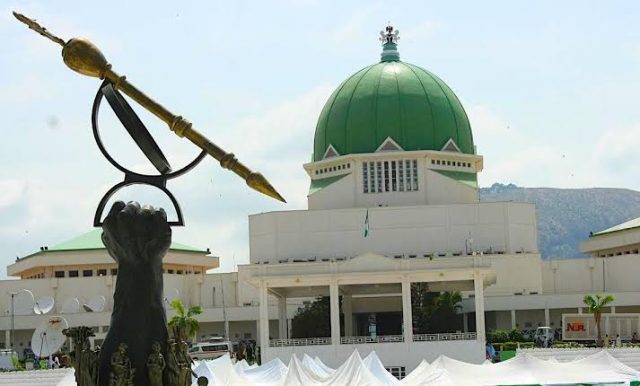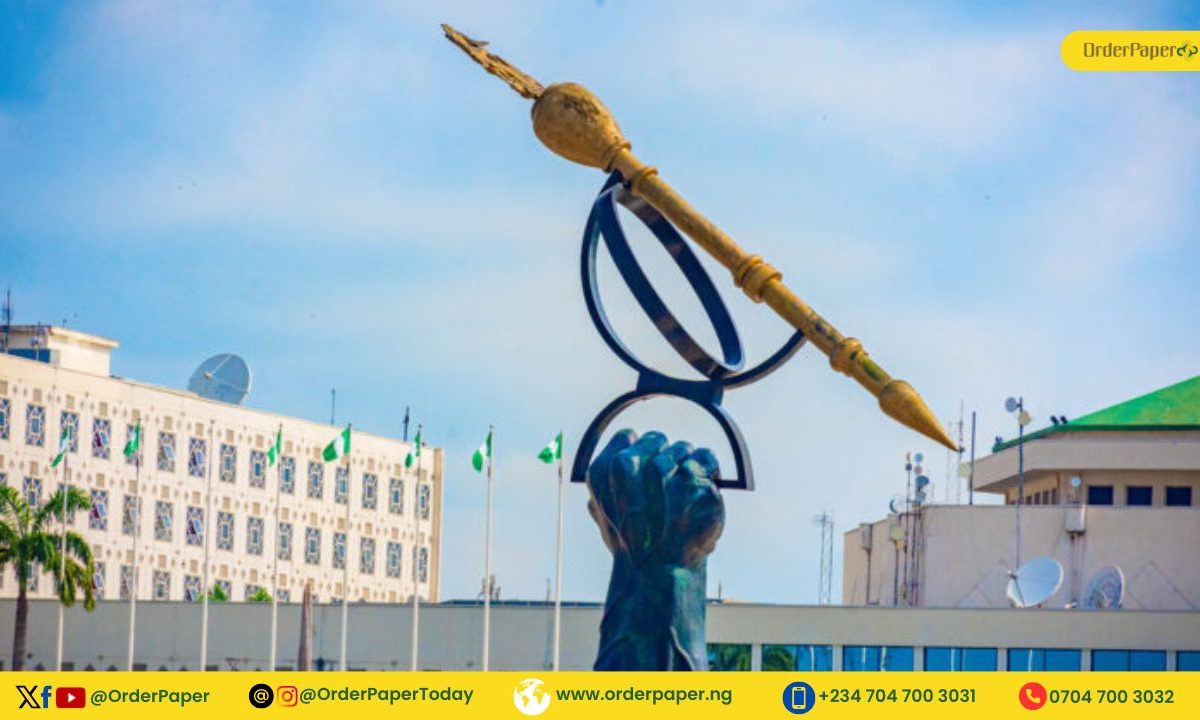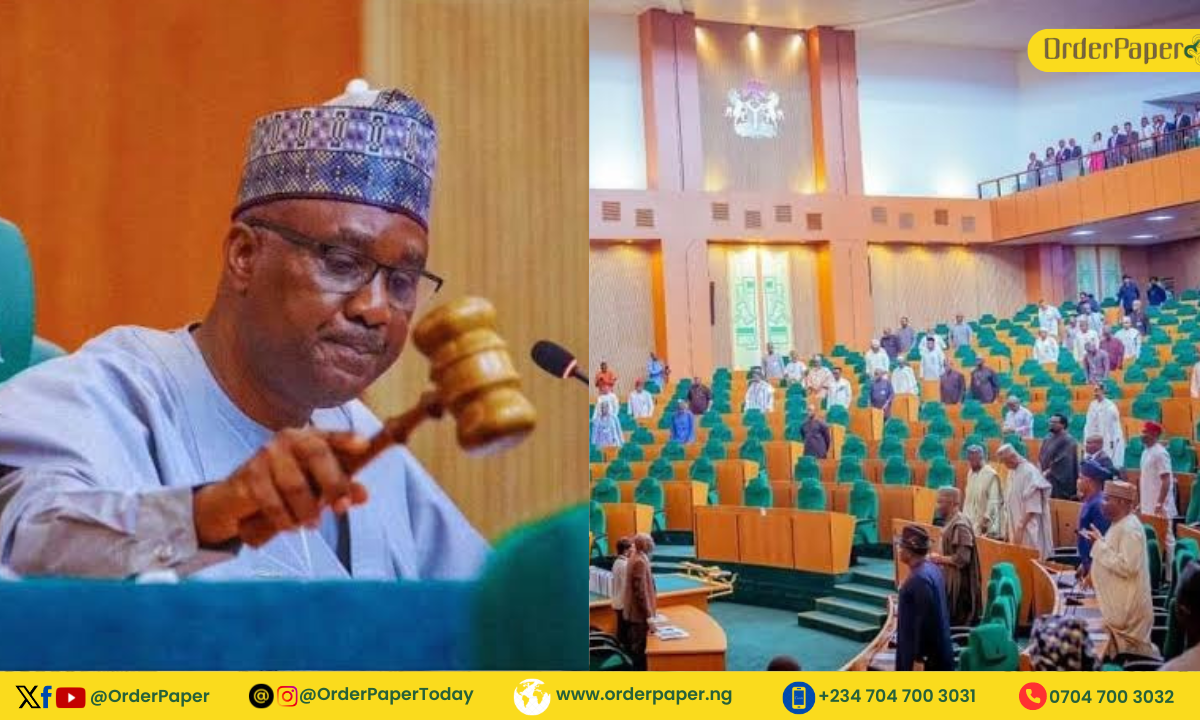Orji Kalu’s call for a part-time legislature resonates with growing public sentiments but contradicts majority thinking in the National Assembly

Chairman of the Senate Committee on Privatisation, Senator Orji Uzor Kalu, has voiced his support for establishing a part-time legislature at both federal and state levels, emphasizing that this change could significantly reduce government expenses and enhance public trust in the political system.
In an interview posted on his verified Facebook page over the weekend, Kalu stated, “I think it would be a very good idea if my colleagues and other members of the Houses of Assembly could agree to convene for three months to focus on constitutional amendments.” He suggested that lawmakers could meet four times a year, with provisions for emergency sessions as needed, rather than maintaining a full-time schedule.
Kalu‘s proposal extends to all legislative bodies in Nigeria, asserting that a part-time structure would be a crucial part of broader austerity measures aimed at addressing the country’s financial challenges. He also highlighted the potential benefits of regional governance, proposing that ministers and legislators could serve dual roles. “If we’re moving toward regional government, it also means that the ministers and legislators will be the same,” he noted.
READ MORE: WANTED: Where is Senator Orji Uzor Kalu? – OrderPaper
The senator urged the President and the National Assembly to support the proposed constitutional amendments, arguing that such reforms would benefit the entire political system. He countered common misconceptions about senator salaries, claiming that they are not adequately compensated for their work.
Kalu concluded by reiterating the urgency of implementing a part-time legislature, stating that this shift would foster trust and provide much-needed relief to the Nigerian populace. His call for reform reflects a growing sentiment among some lawmakers and citizens for a more efficient and cost-effective governance model in Nigeria.
What you should know about the National Assembly
Most people know basic things about the National Assembly, such as that it is a bicameral legislature made up of two chambers—the Senate and House of Representatives—and that there are 109 elected members in the Senate and 360 members in the House.
However, there is much more than that about the National Assembly, and the following report will explore interesting aspects of this great institution.
READ MORE: 15 interesting facts about the National Assembly – OrderPaper
What it costs Nigeria to run the National Assembly

Since Nigeria slipped into its second recession within four years, the call to reduce the cost of governance is back on the agenda.
One of the most debated issues about governance in Nigeria is arguably the amount spent to run the country’s bicameral legislature at the federal level. The subject matter is made more controversial by the secrecy surrounding how the funds are spent and, most especially, the remuneration of the lawmakers.
What does part-time legislature mean and examples of the practice
When discussing part-time lawmaking, people consider allowances, salaries, and other benefits. But that is not the issue. The issue is the overhead cost. If the overhead cost is not controlled — as it relates to the executive, legislature, and judiciary — you cannot achieve a reasonable reduction in the cost of governance. Even if somebody works for two months but runs a very high overhead cost, you would not achieve any cost reduction.
Whether you call it a part-time or full-time legislature, you must provide offices for the lawmakers because they cannot operate from the market. When you talk about part-time legislature, you are probably talking about a system where the lawmakers work for six months in a year. So, it makes no difference. The only difference is that personal payments would cover only six months.
To propose a law is a challenging task. You even need to read through legislation proposed by a colleague to make an informed contribution. So, legislative work is too demanding to be a part-time job.
•Prof. Eddy Erhagbe (Lecturer, International History and Diplomacy Department, University of Benin)
While part-time legislatures may never have worked in any presidential system worldwide, it would be curious to see the practice could play out in Nigeria. It must be acknowledged that part-time legislatures present some challenges: for one, the presidential system of governance is the most powerful system of government in the world, and any nation that practices it must have a center strong enough to hold the federating units. You can only have a strong executive with a strong parliament to check it.
STAR Check: Nigerians, particularly constituents of Abia North Senatorial district, can keep tabs on the legislative performance of Senator Orji Uzor Kalu throughout the 10th Senate here



